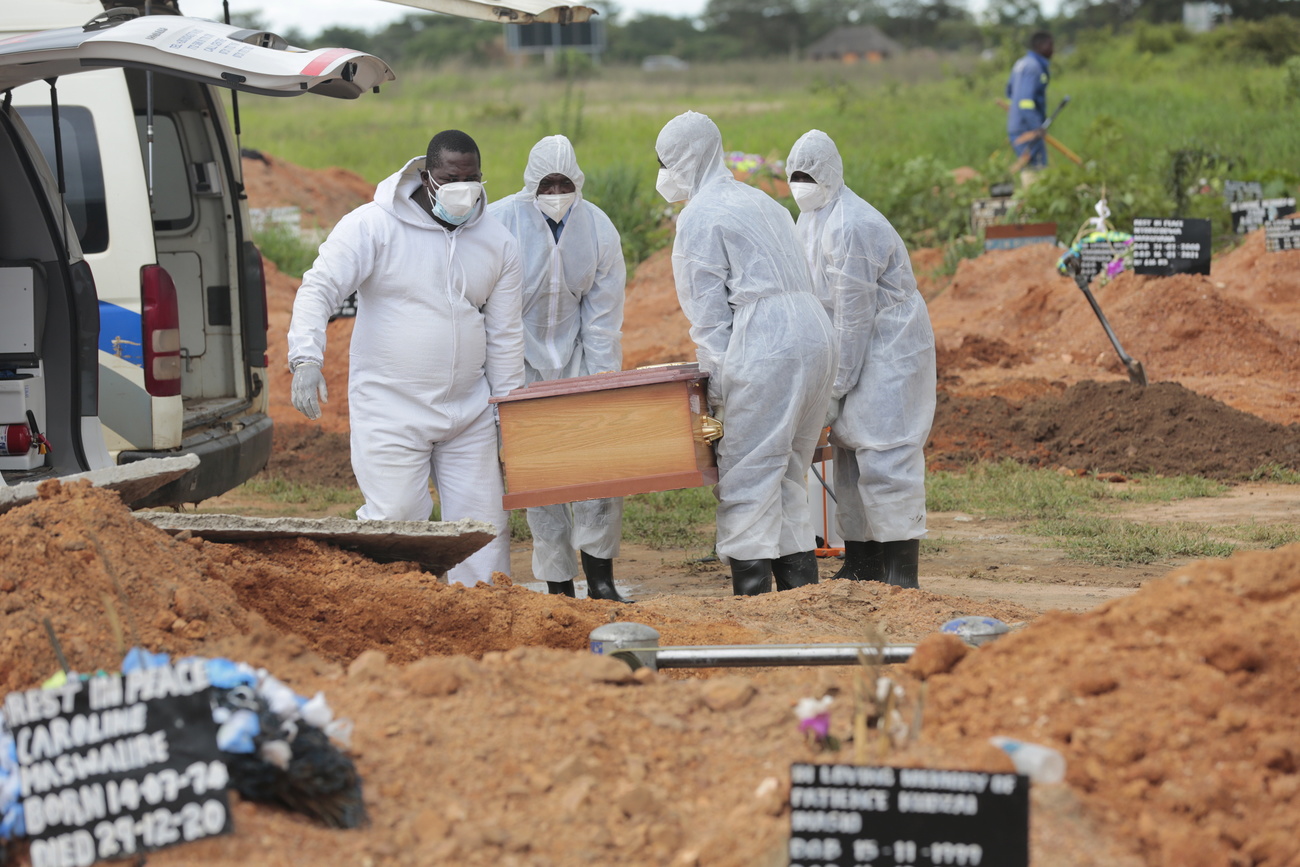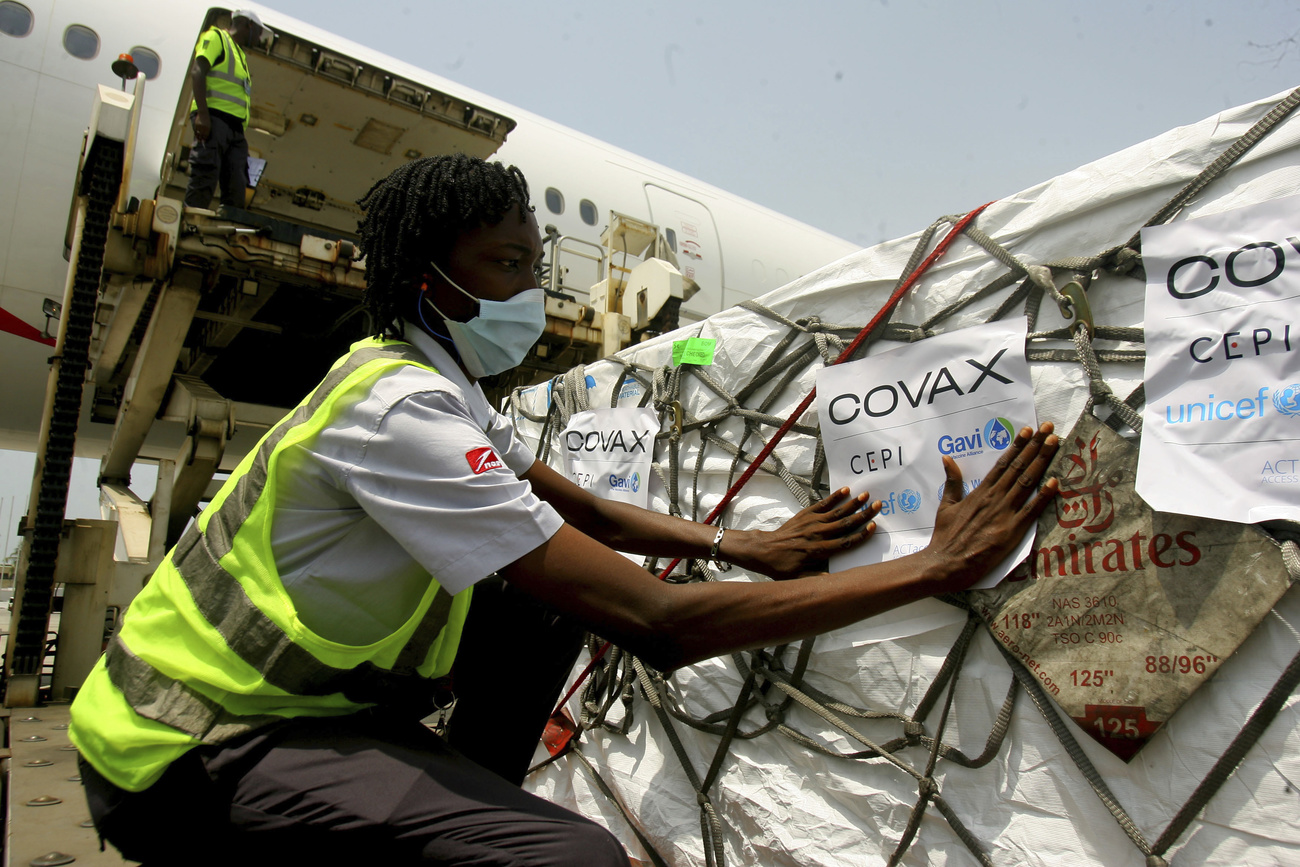
It’s time to put an end to pathogen protectionism
Unrestricted access to pathogens would help the world prepare for new variants and future pandemics, argues Thomas Cueni, Director General of the International Federation of Pharmaceutical Manufacturers and Associations (IFPMA).
Before the Covid-19 pandemic, only experts knew what “genome sequencing” meant. This changed when scientists in China swiftly shared the SARS-CoV-2 genome in early 2020. More recently, scientists from Botswana and South Africa discovered the B.1.1.529 variant, better known as Omicron.
Now we all accept the importance of sharing genomic information swiftly and the impact it can have on helping us take on this and future pandemics. As governments negotiate the details around a new global instrument to improve how the world should prepare and respond to future pandemics, it is important to make sure they consider the role of another – little known or understood – accord, the Nagoya Protocol.
The Nagoya Protocol on Access to Genetic Resources and the Fair and Equitable Sharing of Benefits Arising from their Utilisation to the Convention on Biological Diversity is an international agreement which aims at sharing the benefits arising from the utilisation of genetic resources in a fair and equitable way.
It entered into force on October 12, 2014.
The Protocol aims, through the establishment of national legal frameworks, to create legal certainty and benefit-sharing mechanisms for the users and providers of genetic resources.
Under the Protocol, genetic resources may be accessed subject to the “prior informed consent” of the country providing the resources and once “mutually agreed terms” have been reached that include the fair and equitable sharing of the benefits arising from the utilisation of the concerned resources.
The protocol, which is meant to give guidance on access to and the fair and equitable sharing of benefits arising from genetic resources – including plants, animals and micro-organisms – can and has been used to withhold access to deadly pathogens vital for research. While we all want to protect our Earth’s biodiversity, nobody wants to “preserve” dangerous pathogens and bacteria, rather we want to eradicate them.
So far in the case of the coronavirus we’ve been lucky to have such extraordinary collaboration in sharing pathogen information, but there are no guarantees it will last for ever. Some countries could refrain from sharing pathogens and their genetic sequences and deny scientists – from companies and public research institutions – access to genetic data and physical samples.
Refusal to share pathogens
This is not crying wolf. Far from it. It’s true that the Nagoya Protocol includes an article about paying due consideration to health emergencies, but this is not enough. In recent years, several governments have refused to share pathogens. In the past three years alone the release of data on more than 30 different flu strains has been delayed.

More
Covid vaccines: how to end the wait for billions of people
Almost a decade ago Saudi Arabia asserted its rights over the Middle East Respiratory Syndrome (MERS), delaying efforts to track the disease and assess the risks associated with it. Similar delays have occurred with Ebola (west Africa) and influenza (Vietnam, Indonesia, among others). Countries as diverse as India, Brazil, South Africa and Malaysia assert that the protocol applies to information derived from genetic resources, including digital sequence information (DSI).
By any stretch, this is a potential – and actual – perversion of the well-intentioned rationale behind the Convention on Biodiversity and the Nagoya Protocol itself. Without open access to pathogens and their sequencing, scientists would be unable to develop medical countermeasures. A deadly virus that knows no borders can hardly be classified as a national resource whose biodiversity must be preserved. The protocol was not designed to put lives at risk through a misled form of pathogen protectionism.
Peter Bogner, the founder of GISAID, the public platform used by scientists to rapidly share their genomes with the world said that the Nagoya Protocol “was oriented towards extremely different goals than the exchange of pathogens for public health and emergency response”. External link
Now that health ministers are on the line, and that pandemic preparedness has attention at the highest level, we can finally hope to address the potential mis-implementation of the Nagoya Protocol, drafted with an environmental objective in mind.

More
Calls intensify for Big Pharma to break monopolies on Covid-19 vaccines
Omicron response
Biopharmaceutical companies have hit the ground running in response to the Omicron variant, as they have done with previous coronavirus variants. They are working swiftly and diligently to determine how our current crop of vaccines can stand up to this latest variant.
They are also pursuing the discovery of new technology platforms and vaccines to fight potential new coronavirus variants or unknown viruses. Our current Covid-19 vaccines will hopefully still offer robust protection against severe disease, but we can be sure that we will continue to discover other variants that will pose even greater risks, for which we will need new or updated vaccines.

More
Inside Geneva Podcast: Do we need a pandemic treaty?
So it is vital that the negotiations on the new pandemic preparedness accord directly address amending or at the least clarifying the Nagoya Protocol. It is in all of our interests to have legal certainty over pathogen sharing. The protocol must be enacted in a way compatible with surveillance and response systems respected by scientists. Politicians need to realise that some complex technical issues dealt with by environment ministries have the potential to threaten our global health security.
In early December Switzerland, along with 193 other countries, joined a special session of the World Health Assembly in person in Geneva. It concluded with a standing ovationExternal link as ministerial delegations agreed to move ahead with a new global accord on improving how the world should prepare and respond to future pandemics. They have given themselves two years to draw up the agreement, so that it will be submitted at the World Health Assembly in 2024.
The views expressed in this article are solely those of the author and do not necessarily reflect the views of SWI swissinfo.ch.

In compliance with the JTI standards
More: SWI swissinfo.ch certified by the Journalism Trust Initiative






























You can find an overview of ongoing debates with our journalists here . Please join us!
If you want to start a conversation about a topic raised in this article or want to report factual errors, email us at english@swissinfo.ch.